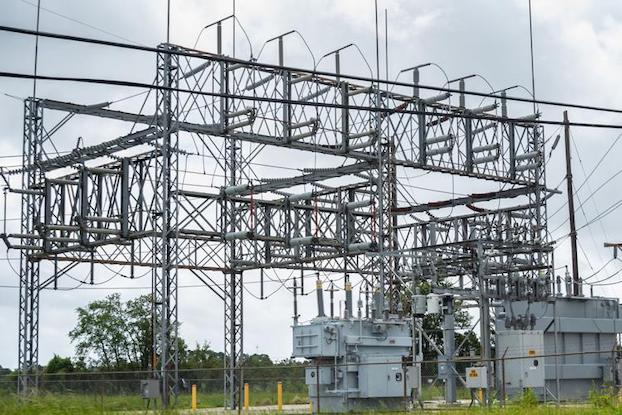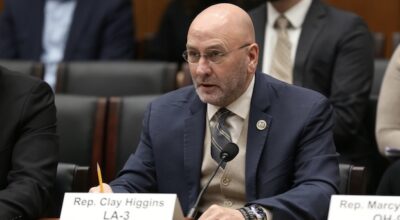Jeff Davis 8: Back in national spotlight
Published 6:00 pm Sunday, June 9, 2019
Four-part documentary to run June 15-16 on Investigation Discovery channel
Courtesy of Investigation Discovery
JENNINGS — The mysterious, unsolved deaths of eight Jeff Davis Parish women will be featured in an upcoming four-part documentary on the Investigation Discovery (ID) channel.
The series “Death in the Bayou: The Jennings 8” will air at 9 p.m. June 15-16 on the ID channel or on the IDGo website at www.investigationdiscovery.com.
“We really hope this documentary creates enough attention that something happens — someone comes forward or a new bit of information is found, someone takes it upon themselves to say something,” Toby Dormer, executive producer for Entertainment One, said in a phone interview from Canada.
The documentary focuses on the deaths of Necole Jean Guillory; 26; Brittney Ann Gary, 17; Crystal Shay Benoit Zeno, 23; Laconia Shontel “Muggy” Brown, 23; Whitnei Charlene Dubois, 26; Kristen Gary Lopez, 21; Ernestine Daniels Patterson, 29; and Loretta Lynn Chaisson, 28. The women’s bodies were all found dumped near canals or roads, mostly in rural areas surrounded by rice fields or woods, between 2005 and 2009.
Guillory’s remains were found along a heavily traveled section of Interstate 10 just east of Jennings. The last of the victims, she was found in August 2009.
“Obviously it’s a fascinating story,” Dormer said. “It’s had a huge amount of press over the years and as we were looking for interesting new stories this one jumped out at us. We looked at it and started speaking to people in Jennings.”
He said he also spoke with British documentary maker Paul Nixon, who filmed footage about the Jeff Davis cases in 2009.
Speaking with him “gave us such a unique prospective on what was happening in Jennings at that time. We felt with that material, we could do justice to the story and take viewers back to the time.
“As we started speaking to people in the town, we got an overwhelming sense that people felt their voices hadn’t been heard and that the wider world wasn’t really taking interest in this story and what happened to these eight women, so we felt duty bound in a way to try to get that message out there.”
From a network prospective, Liz Massie, executive producer for Investigation Discovery, said she saw an incredible opportunity to tell the story.
“Generally we approach the story with re-enactments because we can’t be there at the time, but this afforded us the opportunity to do something very special, which is not to use any re-enactments and to really just let the footage tell the story, whether it was Paul’s footage or the news footage from the time,” Massie said during a phone interview from New York.
“I think for ID — which is known as the home for true crime on television — this was an incredible chance to shine the light on cases that didn’t have any kind of national prospective or attention, so we relished the opportunity to do that for these families.
“The fact that they are unsolved allows us to shine the light and maybe stimulate some new leads and some new opportunities for law enforcement to advance these cases and get justice for these families,” she continued. “We’re very focused on family members and doing whatever we can to get them justice through opening up these stories to in-depth and accurate storytelling. I am proud of what eOne has done and hope the Jennings community will feel like we have done right by them.”
The first part of the documentary focuses on telling what happened over a four-year period when the women died under mysterious circumstances, Dormer said.
“We really wanted to give the viewers enough information so they could be fully equipped to understand what was taking place,” he said. “We were very fortunate to benefit from the numerous journalists and news outlets who were so helpful to us and so gracious in giving us access to their archives, information and doing interviews to really give us that local prospective and tell the story from, and of course Paul Nixon’s footage, which has given us such a unique visual snapshot of Jennings at that time.”
The second part of the series follows the victims’ family members in their quests to find the answers, he said.
“All victims’ families are featured in the documentary one way or the other, whether it’s in the news footage or Paul’s interviews or the interviews we did, we never met any resistance from the victims’ families,” Dormer said. “I think there was an overwhelming desire to get this out there and to try to shine the light on what happened and what can be done. Maybe someone can remember something from the time.”
During the two years working on the project, Dormer said the film crew and production team spent several months in Jennings filming and interviewing local residents.
“We tried to get everyone who wanted to talk the opportunity to talk and we tried to convince many who didn’t what to talk to talk, so it was a wide net of so many people,” he said.
The documentary features interviews with victims’ families, investigators, persons of interest, reporters and others close to the investigation.
“Everyone in Jennings and the surrounding area has an opinion on what happened in the four-year period so there were a lot of people wanting to talk to us,” Dormer said.
Most people were happy to be on camera, he said.
“The message we got very loud and clear from the people of Jennings was that they liked our team,” he said. “They found them respectful and understanding and that enabled us to open a lot of doors.”
Working alongside Nixon, who had built relationships while working on his documentary in 2009, also opened a lot of doors to the production crew, Dormer said.
“Paul came back to Jennings as part of this production team and he had also made real relationships with people there because of his time in Jennings in 2009, so he was able to make a lot of introductions to people who liked and trusted him which was very helpful,” he said.
Working with Whitnei Dubois’ niece Brittany Jones and her sister, Taylor Dubois, also made people feel comfortable with the filming, he said.
Local law enforcement also worked with the crew, but were limited in what they could say because the cases remain an active investigation.
Sheriff’s Office Investigation Commander Ramby Cormier was interviewed for several segments and was helpful in fact-checking much of the information, Dormer said.
Dormer and Massie hope the documentary and any attention the show can get might help reveal more details and encourage the investigations to continue.
“There’s still a lot more that can be done in terms of investigating these crimes,” Dormer said. “I think, we got an overwhelming sense from the local community, that maybe local police and law enforcement didn’t have the resources or the experience or technical know-how to investigate crimes of this magnitude and there is more that can be done.”
The two agree there are still many unanswered questions, information that can be substantiated and obstacles to overcome in solving the deaths.
“Whatever combination of challenges — between trying to find witnesses and the police having resources they need — it just feels like that people know things and they haven’t the audacity to speak up yet,” Massie said. “Maybe not all the cases will be solved with one simple answer, but there are more answers out there. This special may embolden someone to share something; it may encourage state or federal authorities to take another look at this and say ‘Hey we should devote some resources to this.’ You never know, but by telling these stories we can only hope that there may be a path to justice.”
Still Dormer said there are so many theories and rumors that could not be included in the documentary.





